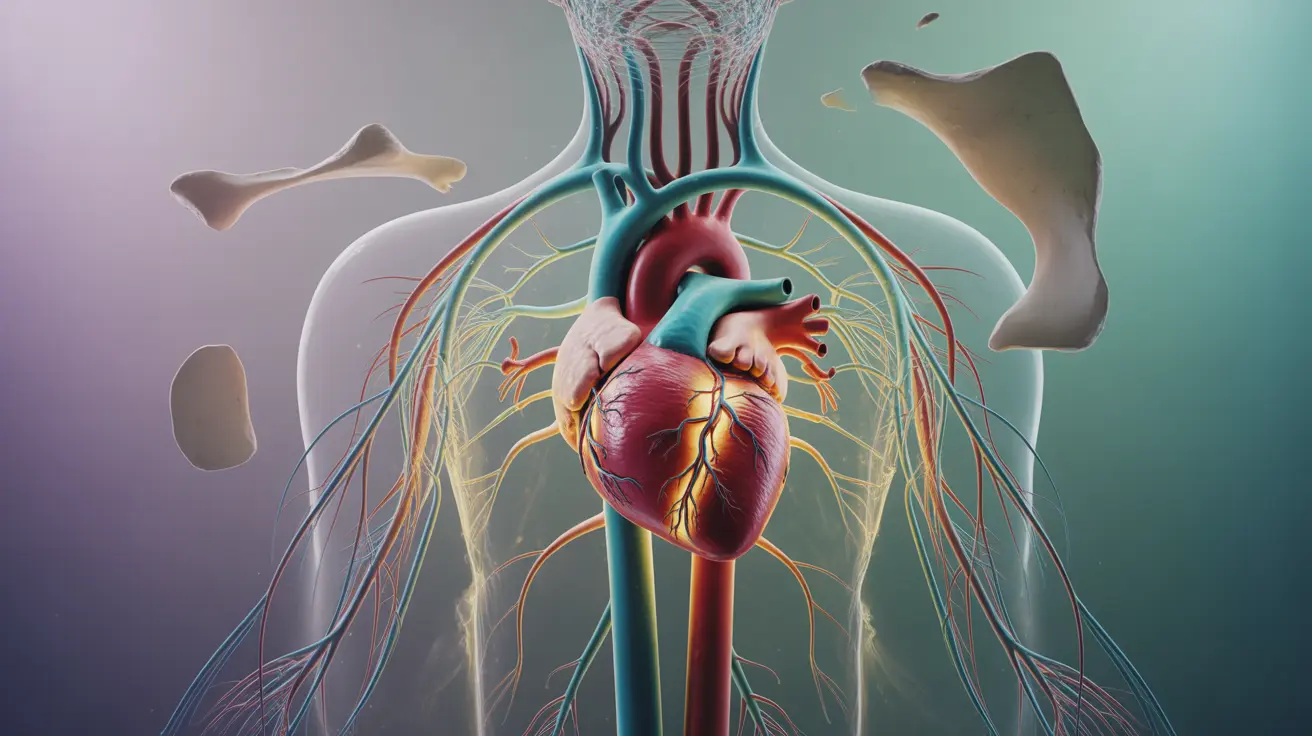Experiencing headaches alongside heart palpitations can be unsettling and concerning. These symptoms, while sometimes harmless, may indicate underlying health issues that require attention. Understanding the relationship between these symptoms and knowing when to seek medical help is crucial for managing your health effectively.
In this comprehensive guide, we'll explore the various causes, risk factors, and treatment options for concurrent headaches and heart palpitations, helping you make informed decisions about your health.
Common Causes of Headaches and Heart Palpitations
Several factors can trigger both headaches and heart palpitations simultaneously:
Anxiety and Stress
Stress and anxiety are leading causes of both symptoms. When you're stressed, your body releases hormones that can increase heart rate and tension in your head and neck muscles, potentially triggering both palpitations and headaches.
Dehydration
Insufficient fluid intake can lead to reduced blood volume, causing your heart to work harder and potentially triggering palpitations. Dehydration is also a well-known cause of headaches.
Caffeine and Stimulants
Excessive consumption of caffeine, energy drinks, or certain medications can stimulate your nervous system, leading to both heart palpitations and headaches.
Medical Conditions That May Cause Both Symptoms
Anemia
Low iron levels can result in reduced oxygen delivery throughout your body, potentially causing both headaches and heart palpitations as your heart works harder to compensate.
Blood Pressure Issues
Both high and low blood pressure can trigger these symptoms. High blood pressure may cause headaches, while changes in blood pressure can lead to palpitations.
Hormonal Changes
Hormonal fluctuations, particularly in women during menstruation or menopause, can trigger both symptoms simultaneously.
When to Seek Medical Attention
Certain situations warrant immediate medical attention:
- Severe, sudden headache accompanied by irregular heartbeat
- Chest pain or pressure along with these symptoms
- Dizziness or fainting
- Shortness of breath
- Confusion or difficulty speaking
- Symptoms that persist for extended periods
Treatment and Management Strategies
Lifestyle Modifications
Making certain lifestyle changes can help manage both symptoms:
- Maintaining proper hydration
- Managing stress through relaxation techniques
- Getting adequate sleep
- Limiting caffeine intake
- Regular exercise (with physician approval)
Medical Interventions
Your healthcare provider may recommend:
- Beta-blockers or other heart medications
- Migraine medications if appropriate
- Anti-anxiety medications when indicated
- Treatment for underlying conditions
Frequently Asked Questions
What are the common causes of experiencing headache and heart palpitations together?
Common causes include anxiety, stress, dehydration, caffeine consumption, hormonal changes, and underlying medical conditions such as anemia or blood pressure issues.
When should I be concerned and seek medical attention for headaches accompanied by heart palpitations?
Seek immediate medical attention if you experience severe symptoms, chest pain, shortness of breath, confusion, fainting, or if symptoms persist unusually long.
How do dehydration and anemia contribute to both headaches and heart palpitations?
Dehydration reduces blood volume, making your heart work harder and causing headaches. Anemia decreases oxygen delivery throughout your body, leading to both symptoms as your body tries to compensate.
Can lifestyle factors like caffeine, alcohol, or stress trigger simultaneous headaches and heart palpitations?
Yes, these lifestyle factors can trigger both symptoms. Caffeine and alcohol can stimulate your nervous system, while stress releases hormones that affect both your heart rhythm and head tension.
What treatment options are available to manage heart palpitations and headaches occurring at the same time?
Treatment options include lifestyle modifications (stress management, proper hydration, sleep hygiene), medications for specific symptoms, and addressing underlying conditions. The approach depends on the root cause of your symptoms.




